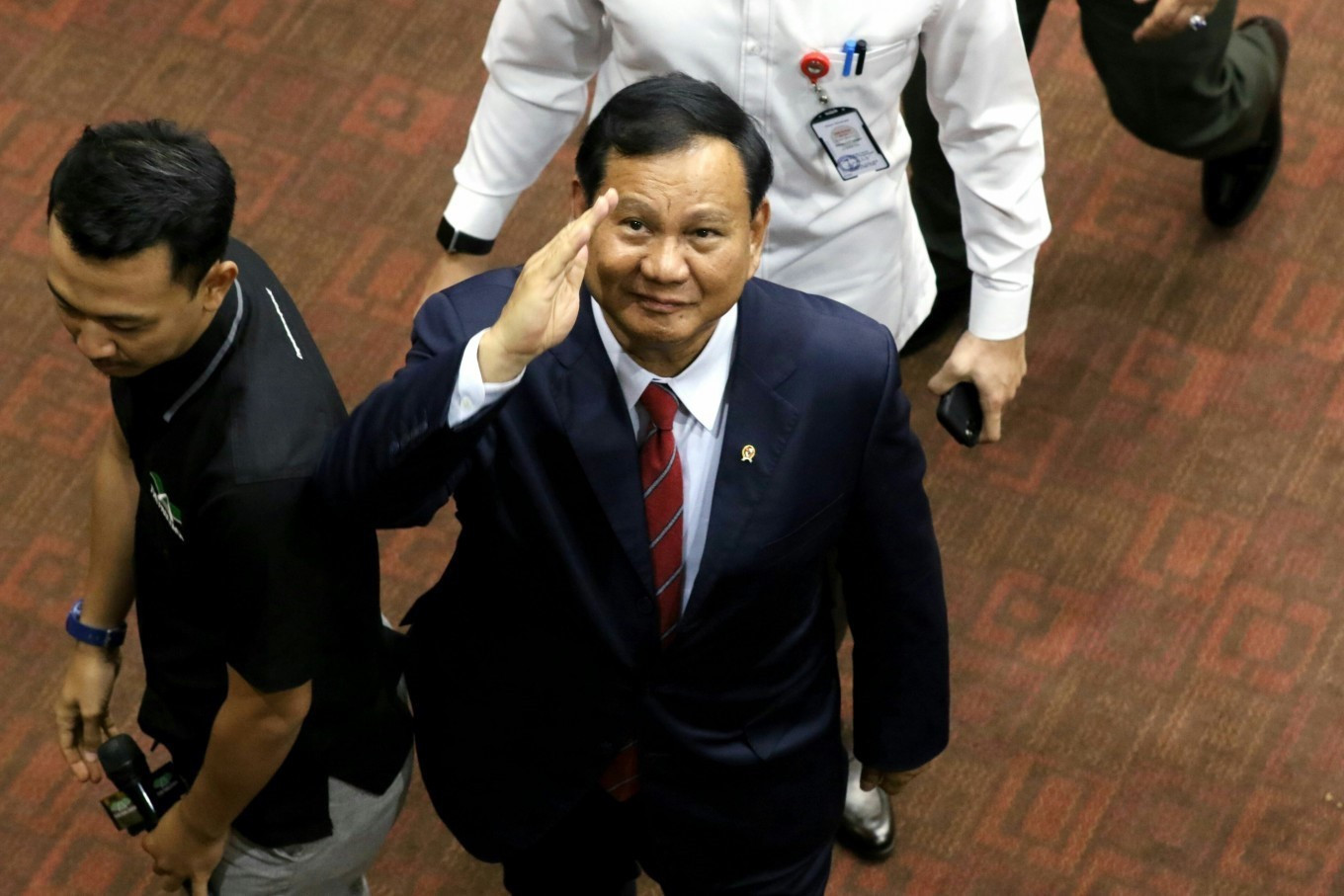News
Housing Ministry Re-Established to Construct 15 Million Homes
Tenggara Strategics (The Jakarta Post) September 13, 2024 Defense Minister Prabowo Subianto attended the inaugural working meeting with the DPR's Commission I at the Senayan Parliament Complex, Jakarta, Monday (11/11/2019). A working meeting between the DPR and the Defense Ministry of Defense discussed the 2020
Defense Minister Prabowo Subianto attended the inaugural working meeting with the DPR's Commission I at the Senayan Parliament Complex, Jakarta, Monday (11/11/2019). A working meeting between the DPR and the Defense Ministry of Defense discussed the 2020
President-elect Prabowo Subianto intends to divide the Public Development and Housing (PUPR) Ministry into two separate entities: one focused exclusively on housing, and the other on infrastructure development, effectively undoing the 2014 merger that created the PUPR Ministry. This decision underscores the new administration's shift in priorities, placing greater emphasis on the housing sector, with an ambitious target to construct 15 million homes by the end of Prabowo's term.
Hashim Djojohadikusumo, Prabowo’s younger brother and head of the housing task force, explains the need for a specialized housing ministry, noting that a lack of affordable housing plays a great role in the recent decline of Indonesia’s middle class. The administration believes that revitalizing the housing sector could help reverse this trend and generate multiplier effects to drive economic growth.
The PUPR Ministry was established in 2014 by combining the Public Works Ministry with the Housing Ministry. At the time, the PUPR Ministry was better positioned to address Indonesia’s growing infrastructure needs, including road construction, water resource management and public transport development.
Since then, the demand for housing has grown significantly, and the PUPR has been struggling to accommodate the growing need while simultaneously managing infrastructure projects. For example, the Association of Housing Development in Indonesia (APERSI) members have complained that the government’s protected agricultural land (LSD) policy has been overlapping with housing property land in the general spatial plan (RUTR), leading to conflicts and delays in property development.
Once appointed, the new housing minister will be responsible for constructing one million apartments in cities and two million houses in villages annually. To support this effort, the draft of the 2025 state budget (RAPBN) has allocated an initial fund of Rp 53 trillion ($US3.44 billion).
In the meantime, the housing task force is engaging various stakeholders for collaboration, including state-owned mortgage lender Bank Tabungan Negara (Bank BTN), the chairman of the chamber of commerce’s (KADIN) advisory board, the national urban development corporation (Perumnas), Real Estate Indonesia (REI) and Sarana Multigriya Finansial (SMF).
Hashim has also mentioned that value-added taxes (VAT) on housing will be removed once Prabowo takes office. The current VAT rate of 11 percent, set to increase to 12 percent next year, has been a significant barrier to affordable housing. He also hinted that the housing sector might receive further incentives, such as reduced notary fees, but VAT exemptions are relatively easier to implement in the short term.
The re-establishment of the Housing Ministry has been in the works for the last four months, following revisions to Law No. 39/2008 on state ministries. Key changes included the removal of the clarification to Article 10, which required deputy ministers to be career state officers rather than cabinet members, and amendments to Article 15, which previously capped the number of ministries at 34, allowing the number to now be determined by the President.
While the focus on housing development has received a warm reception, these legal changes have faced criticism. The clarification of article 10 has helped mitigate the risks of a conflict of interest for the position of deputy minister. Meanwhile, removing the limit on the number of ministries is seen as granting excessive unchecked power to the President, raising concerns that ministerial positions could be used to garner political favors in the future.
According to several sources, president-elect Prabowo Subianto plans to form around 44 ministries in the upcoming government. Of that number, six will be coordinating ministries. This number is larger than the current cabinet, which has 34 ministries. This does not include around 21 new agencies outside the ministerial nomenclature.
One of the ministries that will be separated into its own entity is the Public Housing Ministry, separated from the Public Works and Housing Ministry (PUPR). One of the leading candidates for public housing minister is Nixon LP Napitupulu, the president director of Bank Tabungan Negara’s (BTN), a bank focused on housing finance.
Nixon is considered to have the knowledge and experience to address the issues faced by subsidized housing, including the challenges encountered by the Housing Financing Liquidity Facility (FLPP).
A source stated that Nixon is said to have already met with the Synchronization Team Chairman, Sufmi Dasco Ahmad. Dasco is the Great Indonesia Movement (Gerindra) Party’s Central Executive Board (DPP) daily chairman and also the current House of Representatives (DPR) deputy speaker. Nixon has reportedly been asked to present and identify issues surrounding public housing development.
Before his career at BTN, Nixon worked at Mandiri Taspen, a subsidiary of Bank Mandiri. During his time at Mandiri, Nixon was reportedly close to Budi Gunadi Sadikin, the health minister and former Mandiri president director.
In addition to Dasco, Nixon has also met with Hashim Djojohadikusumo, the younger brother of Prabowo. Hashim also serves as the housing task force chairman, responsible for developing the Housing Ministry’s programs. Besides meeting with Nixon, Hashim has also met with the Perumnas and Sarana Multigriya Finansial (SMF) directors.

